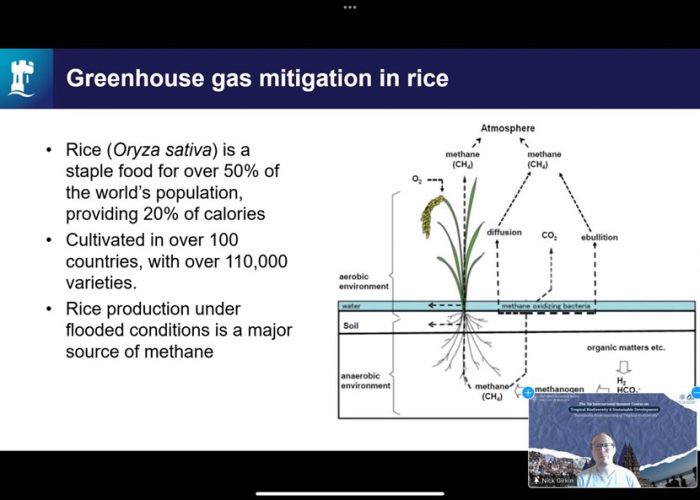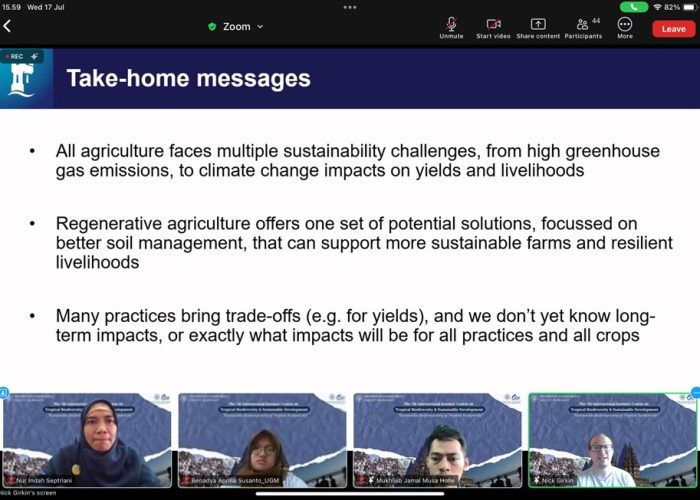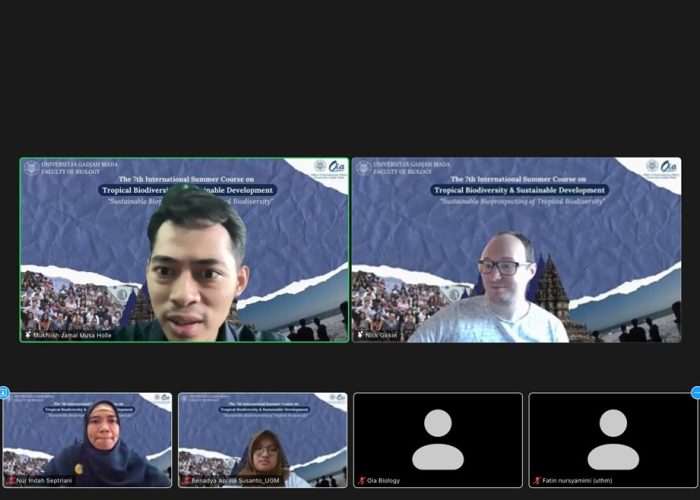Yogyakarta, 17 July 2024 – The second lecture session in the series of the 7th International Summer Course in Sustainable Development, Faculty of Biology Universitas, Gadjah Mada was held after the opening and first online lecture session, last Monday (15/7). Dr. Nick Girkin from the School of Biosciences, University of Nottingham, United Kingdom was present as a resource person at the second session of the lecture with the title “Sustainable Tropical Agriculture” as part of the main theme of this year’s summer course, Sustainable Bioprospecting of Tropical Biodiversity.
Faculty of Biology UGM lecturer as well as Chief Executive of this year’s summer course, Mukhlis Jamal Musa Holle, M.Env.Sc., D.Phil., acted as moderator for the second lecture session. He introduced Dr. Nick as a speaker from the University of Nottingham with his presentation which raised the issue of sustainable agriculture.
Dr. Nick started the lecture by asking the participants a question: what are the sustainability challenges in tropical agriculture? Dr. Nick mentioned several serious challenges to agriculture today: climate impact, soil erosion, water pollution, land use, greenhouse gas emissions, and high production costs. The urgency of this challenge leads to several main problems including climate change, food security, and carbon emission reduction targets.
Climate change, land degradation, and pests and diseases are at least a concern for the agricultural corps, including tea, coffee and cocoa plantations. This condition has impacts on reducing the quality of production, water resources, outbreaks and decreasing the population and diversity of pollinators. Dr. Nick mentioned the use of alternative fertilizers, agroforestry, ecological management and minimizing the use of pesticides as mitigation efforts. This is different with non-perennial plants such as rice, Dr. Nick said the DNDC system or DeNitrification-DeComposition) is a rice farming model that can simulate the greenhouse gases produced.
The summer course participants were enthusiastic in attending all the lectures, it is hoped that through these activities students can contribute to innovation in the development of sustainable agricultural systems while maintaining the balance of the ecosystem and biodiversity within it.



